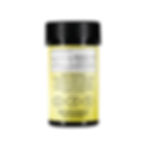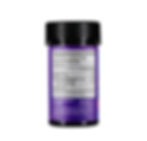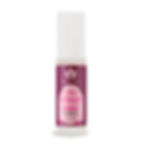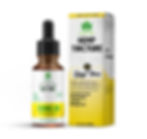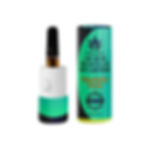CBD PRODUCTS
THC-FREE Broad Spectrum and Full Spectrum CBD Products
We only work with sustainable organic farms who can supply premium CBD and CBG hemp flower. All of our CBD products are compliant with the Farm Bill of 2018 and are legal buy in all 50 states. Choose from a wide array of CBD products, including tinctures, gummies, softgel capsules, lotions, balms, oils, concentrates, pre-rolls and flower.
SHOP ALL CBD PRODUCTS

What Is CBD?
CBD (also known as cannabidiol) is one of over a hundred chemical compounds found in the cannabis plant. While CBD is found within the marijuana plant, CBD is non-psychoactive, unlike THC (tetrahydrocannabinol), which is the most commonly thought of cannabinoid found in cannabis.
Also unlike THC, CBD is legal across the United States without a prescription, thanks to the 2018 Farm Bill. This, in turn, makes CBD a very attractive option to relieve pain and other ailments without the mind-altering effects experienced with marijuana or any other drugs. Because of this, CBD is even prescribed to children with certain conditions, such as cancer and epilepsy.
To be readily used, CBD needs to be extracted from the cannabis plant, then diluted with a carrier oil (usually coconut or hemp seed oil). High-quality CBD products will use organic MCT oil as a carrier. This state is now the most common mixture of CBD that is currently being used for medicinal purposes.
How CBD Works
CBD oil is thought to improve health and overall mental and physical well-being through its interaction with the body's endocannabinoid system. According to research, the human body responds positively to the cannabinoids in CBD because they so closely resemble the endocannabinoids produced naturally in the body, which are responsible for helping regulate practically every function in the body ranging from hormone production, to metabolism regulation, to the ability to deal with stress and anxiety.

How Much CBD Should I Take?
When you buy CBD you should get some sort of direction for use or a recommended dosage by the producer, but the experience may vary for individuals. The dose of CBD ideal for an individual depends mainly on his/her body weight. However, it may also be influenced by some other factors, such as the individual's body chemistry, his or her age, if they have any other health problems, and if they've taken CBD or used cannabis products in the past.
Unfortunately, there are no official guidelines for CBD dosage, since it is not yet FDA-regulated. But that notwithstanding, there are general rules and best practices you can follow.
It doesn’t matter if you are a beginner in the use of CBD or an experienced CBD user, having an understanding of how CBD works or should be used may be a little confusing. This is made even worse by the fact that the industry is quite new. Consequently, there is a persistent question of what is the correct dosage of CBD. In this article, we will explain the proper CBD dosage and how you should be using it.
CBD DOSING GUIDE
As a general rule, you should start with a low dosage and gradually increase how much you take. Also, there may be differences in the actual CBD content between different products. Be careful when you try a new CBD product, or as you change the dosage form.
It's important to begin with a low dose of CBD until you're sure how your body and the entire system reacts to the CBD you’re consuming. There has been a wide range of studies on CBD dosage in clinical trials, but the information so far has not been sufficient to propose any principle on CBD dosages. Consequently, there is a need for additional testing before there can be any CBD dosage recommendation for specific uses.
It's best to use the recommended dose of the CBD product you’re buying unless you have your doctor’s approval to use a larger dose of CBD. People who have certain health problems, like liver disease, may have to take lower doses of CBD in order to avoid some serious side effects.
When you’re considering your CBD dosage, it is important to keep in mind the following points:
-
If you use CBD to treat seizures, ask your doctor what the best product is; your doctor should also inform you of the right dosage in this case.
-
Many CBD oils are available at a concentration of 1 milligram per drop, so it is easy to increase the dose. However, read the CBD product labels carefully to make sure you know the volume of CBD provided by each drop.
-
CBD edibles, such as gummies, may also be supplied in standard doses, which is often 10mg CBD per gummy.
-
The dosage of CBD Vape Oil you should take may be tricky too. This depends primarily on the amount you inhale as well as the CBD concentration of the vaping liquid. Timed release doses of CBD are the ideal route.
-
Start by using CBD creams and lotions in moderation.
Is It Possible To Take An Overdose Of CBD?
Although it is quite difficult to take an overdose of CBD, it may be possible. A 2011 study, however, found that there is a tolerance of heavy dosage of CBD by the human body, even if you take as high as 1,500mg per day. That’s about 150 average CBD gummies or 5 bottles of the average CBD tincture, so not an amount that you would ever realistically take.
According to some estimates, a man of 180 pounds would have to take more than 33 tablespoons of CBD oil in order to overdose. Because the recommended dosage of CBD in this context is 1/8 teaspoon (concerning his weight), the man has to put in serious effort to reach the overdose point (at 33 tablespoons) before reaching the point where CBD may start showing signs of being harmful.
For those who are on other medications and want to use or start taking CBD, it is best that they first discuss this with their doctor. The side effects of CBD usage are still few, and even if they occur, they only include minor issues such as appetite change, diarrhea, fatigue, etc.
When Do I Increase My Regular CBD Dosage?
Unless your doctor recommends otherwise, it is best to start with a lower dose of cannabidiol and gradually increase it. This may mean you go from 20 to 40mg of CBD per day, for instance, by increasing the CBD amount by 5mg each week for four weeks. Continue like this until your symptoms are effectively being treated.
For example, you could begin with 40mg of CBD to treat severe pain. On days when you are in severe pain, you may take 40mg of CBD. Increase this to 45mg after one week and use 50mg after the second week. For anxiety and stress management, regular CBD dosing throughout the day with lower doses is the most effective method to prevent symptom onset.

Is CBD LegaL?
Yes, CBD is legal in the United States on a federal level. Well, hemp-based CBD is at least.
Before you buy CBD oil online — read on. Even though CBD is legal here n the USA, it's not legal in some other countries. Also, be aware that there are two kinds of CBD - hemp-based and marijuana-based - and they're not both legal in all states. Furthermore, a few states have decided to ban CBD products from being sold altogether.
Hemp-Based vs Marijuana-Based CBD
First, you should understand the difference between hemp-based and marijuana-based CBD. Hemp-based CBD comes from hemp flower plants that contain 0.3% THC or less; whereas marijuana-based CBD comes from cannabis plants that contain more than 0.3% THC. The end product - the cannabidiol - still contains 0.3% THC regardless of its origins. The very fact that it was derived from a cannabis plant, though, makes marijuana-based CBD illegal on a federal level in the United States. Different states still do allow its use, which we will cover later.
Hemp-based CBD, on the other hand, is federally legal, so long as it contains less than the required limit of 0.3% THC. Typically, hemp cultivars produce a minimal amount of THC - less than 0.3% - while still producing an abundance of CBD, making hemp flower ideal for cannabidiol production. Hemp flower and CBD were both first removed from the DEA's Schedule 1 Drug List in 2014, and this position was clarified in the 2018 Farm Bill.
Farm Bill of 2018
In 2018, the US federal government passed the Farm Bill.
The Farm Bill is a legislative document that covers agricultural, nutritional, and conservation-based policies. The 2018 Farm Bill is significant because it includes hemp alongside other conventional crops.
Specifically, the 2018 Farm Bill removed hemp from the Controlled Substances Act. Ultimately, the Farm Bill legalized the cultivation, manufacturing, transportation, and sale of hemp-derived products. Since CBD products are derived from hemp, they are legal under the 2018 Farm Bill. The Bill also protects products being shipped across state lines in which CBD is not permitted.
As you can imagine, the Farm Bill supersedes all state-level laws. However, there are a few states that have an extremely conservative view of hemp-derived CBD. Idaho, Iowa, and South Dakota are the only three states that still declare hemp (and therefore CBD) illegal.
What Type of CBD Products are Legal?
Any type of hemp-based CBD product is legal thanks to the Farm Bill. However, there is specific criteria that CBD products must meet. Let's take a look at what makes CBD products legal.
First, CBD products must be derived from hemp. Remember, the Farm Bill removed hemp from the Controlled Substances Act. If you find CBD oil that's derived from THC-rich cannabis plants, it's not legal on a federal level, but only in certain states.
Next, regardless or their origin, all CBD products must test below 0.3% THC. Lawmakers decided that 0.3% THC is the maximum allowable threshold of THC in any CBD product. If your CBD product exceeds 0.3% THC, it's illegal.
Finally, CBD products are not approved by the FDA yet. While the Farm Bill of 2018 did give control of the regulation of CBD to the FDA, this regulation has not begun thus far. So, if you find a CBD product that makes health claims, it's illegal in the united States. CBD is a therapeutic substance that can assist and support various mental and physical issues. Still, manufacturers cannot claim that CBD cures anything.
Is CBD Legal In Your State?
Yes, most likely. But maybe not. It all depends on where you are.
There are only 3 states that do not allow the sale of CBD at all. These states are: Idaho, Iowa and South Dakota. CBD is permitted in some form or another in all of the other 47 states. Hemp-based CBD is legal in these 47 states, so long as it contains less than 0.3% THC.


%20(Website)%20(1000%20x%20200%20px)-8.png)

